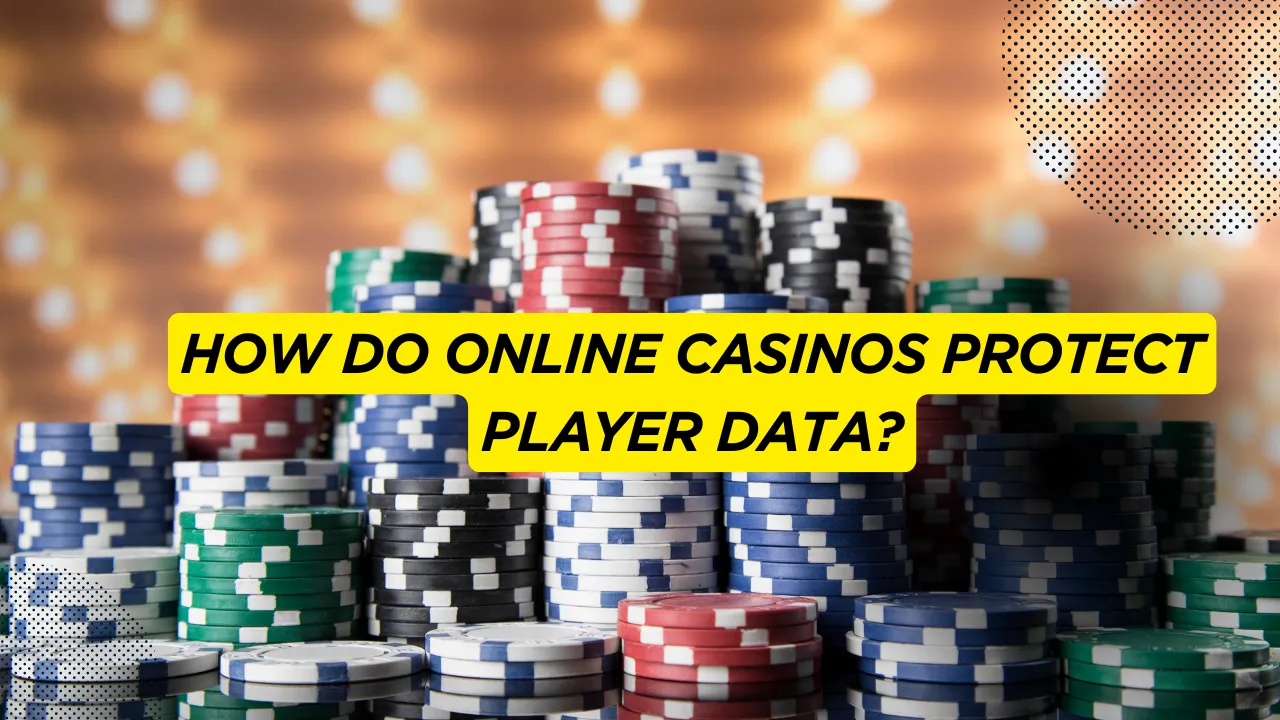In the digital age, online casinos are more than just entertainment platforms—they are also data-heavy systems that handle sensitive personal and financial information. From account registration details to payment card numbers, players hand over a lot of information every time they log in, deposit funds, or cash out their winnings. With this much data at stake, one of the most important questions players should ask is: how do online casinos protect player data?
The truth is that reputable casinos invest heavily in data protection, not only because they are legally required to, but also because trust is their currency. Without security, no casino can survive in today’s competitive market. Let’s break down the methods and systems casinos use to safeguard players.
Why Data Protection Matters in Online Gambling
Player data is a goldmine for cybercriminals. Financial details, identity documents, and login credentials are highly valuable on the black market. A breach not only risks monetary loss but can also cause long-term issues like identity theft.
For casinos, a single breach can destroy reputation instantly. Players talk, regulators investigate, and competitors benefit. That’s why secure systems are no longer optional; they are the foundation of every serious operator. It’s not surprising that both established operators and new betting sites emphasize their security frameworks as much as their game libraries when marketing to players.
Encryption: The First Line of Defense
Encryption is at the heart of online casino security. Modern platforms use SSL (Secure Socket Layer) or the newer TLS (Transport Layer Security) to protect data transfers. When you log in, make a payment, or even browse the casino’s site, encryption ensures that your data is scrambled into unreadable code before traveling over the internet.
To the average player, this looks like a padlock symbol in the browser bar and a web address starting with “https.” But behind the scenes, it means that even if hackers intercept the data, they won’t be able to decode it without the encryption key.
Firewalls and Intrusion Detection Systems
Casinos operate around the clock, which means their servers are always potential targets. Firewalls serve as digital barriers between trusted casino systems and the wider internet, filtering out malicious traffic before it can reach sensitive areas.
In addition to firewalls, many casinos use intrusion detection systems (IDS) and intrusion prevention systems (IPS). These tools monitor network traffic for unusual patterns, sounding alarms—or blocking traffic outright—if suspicious activity is detected.
Two-Factor Authentication and Player Accounts
Protecting data isn’t just about back-end systems. Casinos also encourage players to take part in security through two-factor authentication (2FA). With 2FA enabled, logging in requires not only a password but also a secondary code, often sent to a mobile phone.
This makes it far harder for hackers to access accounts, even if they manage to steal login credentials. In my own experience, casinos that offer and promote 2FA tend to be the ones that take overall player protection most seriously.
Payment Security and Fraud Prevention
Handling financial data is one of the most sensitive aspects of online gambling. Reputable casinos partner with regulated payment providers and employ tokenization, which replaces sensitive data with randomized tokens that are useless to hackers.
Fraud detection systems also monitor transactions in real time. If a sudden large withdrawal or unusual deposit pattern is detected, the system may flag or temporarily block the activity until the account holder verifies it. This not only protects casinos from fraudulent behavior but also safeguards players from unauthorized use of their accounts.
Licensing, Regulation, and Compliance
Technology alone doesn’t guarantee protection. Regulatory frameworks ensure that casinos adhere to strict data security standards. Licenses from bodies like the UK Gambling Commission, Malta Gaming Authority, or Gibraltar Regulatory Authority require casinos to implement robust security measures and undergo regular audits.
These audits check everything from server protection to responsible gambling tools. Non-compliance can result in heavy fines, license suspensions, or even permanent shutdowns. Players can usually verify a casino’s license in the footer of the site—an important step before signing up.
The Role of Independent Auditors
Beyond regulators, independent auditors play a vital role in player protection. Companies like eCOGRA and iTech Labs test not only game fairness but also security protocols. Their certification signals that the casino has undergone third-party scrutiny and passed strict requirements.
This transparency builds trust, especially for new players who may not fully understand the technical details of encryption and fraud prevention.
Educating Players About Security
Interestingly, many casinos are also investing in educating players about data protection. They publish guides on choosing strong passwords, enabling 2FA, and spotting phishing attempts. After all, even the best technology can’t protect a careless player who shares login details or falls for a fake email.
Some casinos even send alerts when they detect logins from unusual devices or locations, prompting players to confirm their activity. This proactive approach reassures players and discourages hackers.
The Future of Data Protection in Online Casinos
As technology advances, so do threats. Casinos are increasingly turning to artificial intelligence and machine learning to predict and block potential attacks. Blockchain technology is also being explored to provide even greater transparency and data integrity, particularly in payment systems.
The future likely holds more personalized security as well, with casinos adapting protection measures based on individual player behavior and risk profiles.
Final Thoughts
So, how do online casinos protect player data? The answer is through a multilayered approach: encryption, firewalls, fraud detection, regulatory compliance, and player education. The combination of advanced technology and strict oversight ensures that reputable casinos can provide not only entertainment but also peace of mind.
In my experience, the best way to feel safe is to do your homework. Check for licenses, look for visible security indicators like SSL encryption, and take advantage of features like two-factor authentication. When you play at a reputable casino, your data is as protected as it would be with any major online financial institution.









